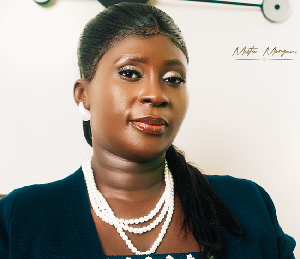"It is in the general interest of the United States to encourage the development of a world in which the fault lines separating nations are bridged by shared interests.
And it is in the economic and political interests of the United States to ensure that if the world is moving toward a common language, it be English; that if the world is moving toward common telecommunications, safety, and quality standards, they be American; that if the world is becoming linked by television, radio, and music, the programming be American; and that if common values are being developed, they be values with which Americans are comfortable.
"These are not simply idle aspirations. English is linking the world. American information technologies and services are at the cutting edge of those that are enabling globalisation. Access to the largest economy in the world - America's – is the primary carrot leading other nations to open their markets."
The above is the view of David Rothkopf, managing director of Kissinger Associates and an adjunct professor of international affairs at Columbia University. He served as a senior official in the US Department of Commerce during the first term of the Clinton administration. What makes this view of great interest is that it is one shared by the American establishment.
Is Ghana a victim of cultural imperialism or a beneficiary of it? The impact of globalisation on our culture and the impact of western culture, in particular, on the globalisation that we have become an almost one-way recipient of is the subject we wish to just touch on a little without pretending to make a tortuous intellectual argument about. Is Ghana at risk from the homogenising influences of globalisation? Is our identity in crisis?
Speaking to The Statesman in an interview this week, the Minister of Chieftaincy and Culture, S K Boafo, lamented the impact of foreign influences on Ghanaian culture over the past 50 years. Foreign, particularly American, films and music, fashions, fads, language, have all served to dilute Ghanaian culture, he said.
Indeed, there is rising concern amongst many worldwide about this process of globalisation. In October 2005, UNESCO even passed a convention on the "protection and promotion" of cultural diversity. The drafters worried that "the processes of globalization… represent a challenge for cultural diversity, namely in view of risks of imbalances between rich and poor countries."
The richer countries will eclipse their developing nations with ideas, products, brands that supplant the traditional; with time, the world will end up as one gigantic extension of the American Ideal.
But does the increasing flow of people and ideas necessarily lead to a stamping out of cultural diversity; and what are the plus points of this mixture of people and places?
Writing in the New York Times in January 2006, one Ghanaian writer and philosopher, Kwame Anthony Appiah, argued that his home city of Kumasi is actually becoming more 'cosmopolitan", less homogenous, under globalisation:
"Yes, globalisation can produce homogeneity. But globalisation is also a threat to homogeneity. You can see this as clearly in Kumasi as anywhere. One thing Kumasi isn’t - simply because it’s a city - is homogeneous. English, German, Chinese, Syrian, Lebanese, Burkinabe, Ivorian.
"When people talk of the homogeneity produced by globalisation, what they are talking about is this: Even here, the villagers will have radios (though the language will be local); you will be able to get a discussion going about Ronaldo, Mike Tyson or Tupac; and you will probably be able to find a bottle of Guinness or Coca-Cola (as well as of Star or Club, Ghana’s own fine lagers). But has access to these things made the place more homogeneous or less? And what can you tell about people’s souls from the fact that they drink Coca-Cola?" Indeed, this idea of ‘contaminating’ cultures can sometimes lead to new ideas, new cultures, rather than a mere replica of cultural practices elsewhere. Ghana is famed for its high-life music, for example; a product depicted as typically ‘Ghanaian’ but actually a complicated patchwork of influences – traditional Ghanaian, with West Indian big band, with American jazz, as each successive wave of foreigners to Ghana left their mark on the music scene. One can even argue the ‘advantages’ of globalisation and shifting cultures. Mr Boafo pointed out that culture is never a static concept, but always a dynamic, evolving and adapting set of customs and ideas.
Alongside the negative changes he has seen since the time of Independence, including the demise of the extended family, and the growing trend for immodest Western-style clothing, he points to several more positive effects of these outside ideas.
The practice of ‘tribal’ markings has become far less pervasive, for example; seen as ‘brutal’ through the eyes of outside cultures. A greater respect for women and for human rights, also a product of this global exchange of ideas, is gradually leading to an erosion of female genital mutilation in Ghana – another positive move.
Other progressive effects of this globalisation can be more effective health care, better education and more support for development – as an increasing understanding of other places and other cultures leads to a greater feeling of obligation to help.
In discussing the homogenisation of culture, perhaps there is a danger in generalising, homogenising the concept of culture itself – which does not in fact mean the same thing for all people, which should not in fact always be preserved at any cost.
Rather, as Mr Appiah points out, "Talk of authenticity now just amounts to telling other people what they ought to value in their own traditions." Even in Ghana, it is difficult to talk about a national culture, as ethnic traditions and practices have merged to form larger ones, and now as this ‘Ghanaian’ culture merges, draws on, is sometimes overshadowed by ideas from outside.
In Ghana, as elsewhere, the pervasiveness of Western culture is being felt; and as the Cultural Minister suggests, steps must be taken to preserve those parts of our culture which we value, and which are valuable. But as aspects of our old cultures change, adapt, maybe disappear, we have the opportunity to create something new – drawing on the heterogeneous, cosmopolitan nature of modern Ghana and the modern world to create something that is a unique mixture of both.
Editorial News of Monday, 16 April 2007
Source: Statesman












